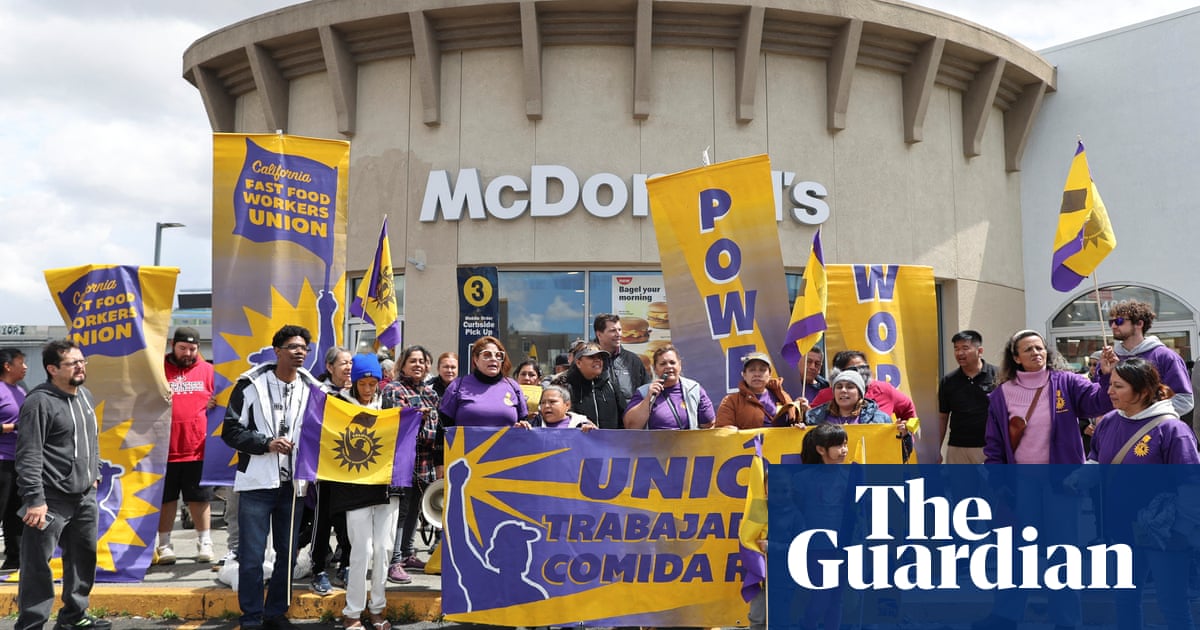- cross-posted to:
- usnews@lemy.lol
- cross-posted to:
- usnews@lemy.lol
Business groups claim hard-fought $20 hourly wage victory will cause reduced hours, layoffs and price hikes – critics say otherwise
As fast-food workers celebrated a pivotal wage increase to $20 an hour in California last week, an old economic debate was awakened by business groups and others claiming the increase will wind up hurting workers through reduced hours and layoffs, hurt customers with price hikes, and harm the franchise owners of fast food restaurants.
Their critics are not so sure.
The hard-fought wage increase to $20 an hour from California’s current minimum wage, $16 an hour, was a compromise to initial demands of $22 an hour with annual wage increases. Representatives of fast-food workers and the fast food industry came to a deal to avoid what would have been a costly ballot initiative over the passage and signing of the California fast food sector bill last year.
“Frontline workers like me organized, went on strike, and fought to pass a historic law that raises our wages and gives us a seat at table with some of the biggest fast food corporations in the world,” said Anjelica Hernandez, a McDonald’s worker in Los Angeles for nearly 20 years. “Even though we are the engine of a billion-dollar industry, too many of us struggle to keep with rent, our bills and the rising cost of living.”



Remember, prices arent simple functions of cost. The business owner isn’t tabulating costs to produce a product, and then adding a standardized profit markup to determine price. Generally it works in reverse. A business owner introducing a new product into a market is competing with the prices already in the market. If your product is of similar quality, you’re not gonna sell your product for much higher than that market price, no matter how much it costs you to make. Instead, you increase your profit margins by reducing costs as much as you can. Like say, fighting against legislation like this to pay your workers less.
Now, there probably will be some price increases from this, same as there was from the pandemic, because people will expect to pay more because they think that’s how prices work. But they can only get away with so much increase, anyone that keeps prices low gets an advantage over the competition.
Also, the threats of reduced hours and layoffs is a pretty empty threat. Again, employment isnt a simple function of cost. Business owner isnt budgeting a set amount of earnings to hire with. An employee is there to handle customer demand. If you don’t have the employees to handle the demand you’re getting, you’re losing sales. Especially in fast food where consistency is so important to customer retention. If you’re short on fry cooks and have to turn down a bunch of customers hoping to get fries with their meals, they’re gonna go elsewhere eventually. But they also dont want more employees than they need to meet that demand, thats eating into the profit margins. This is why fast food workers get so stressed, employers try to meet the most demand with the lowest amount of labor cost. Again, there might be some temporary layoffs and hour reductions as employers try to stretch their labor even thinner, until they realize they were already stretched to the limit and have to hire back.
Exactly. In Econ class we used the elasticities of supply and demand to see who “paid” for the tax or additional costs. Business owners will try to push it off if they can, but because of prices people are willing to pay, they often eat a large portion out of profit.
Things are never as simple as econ classes make you believe.